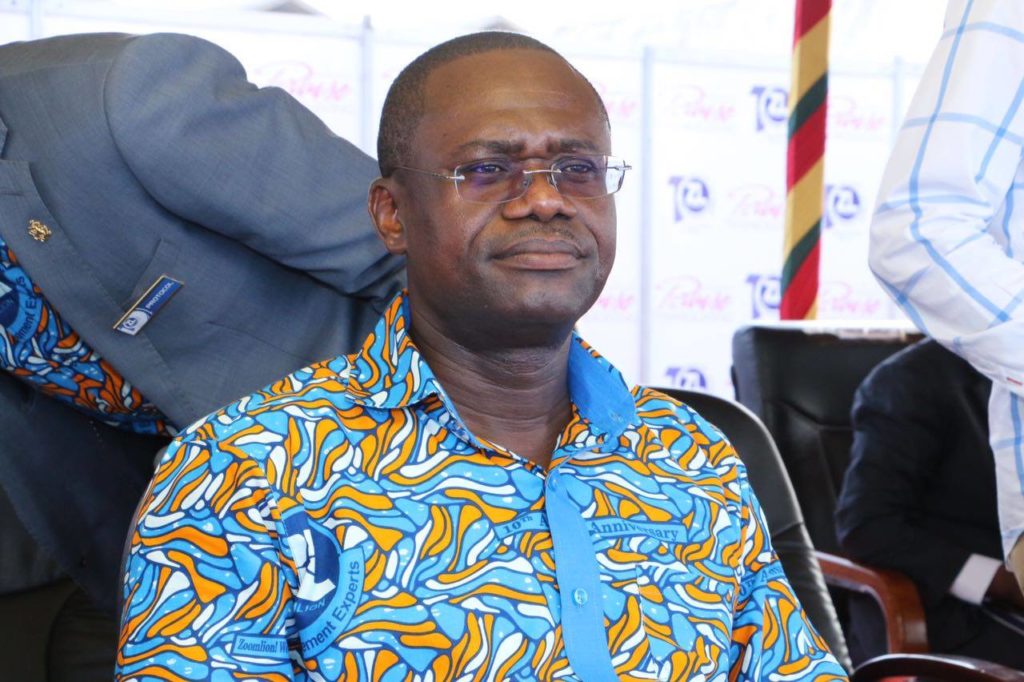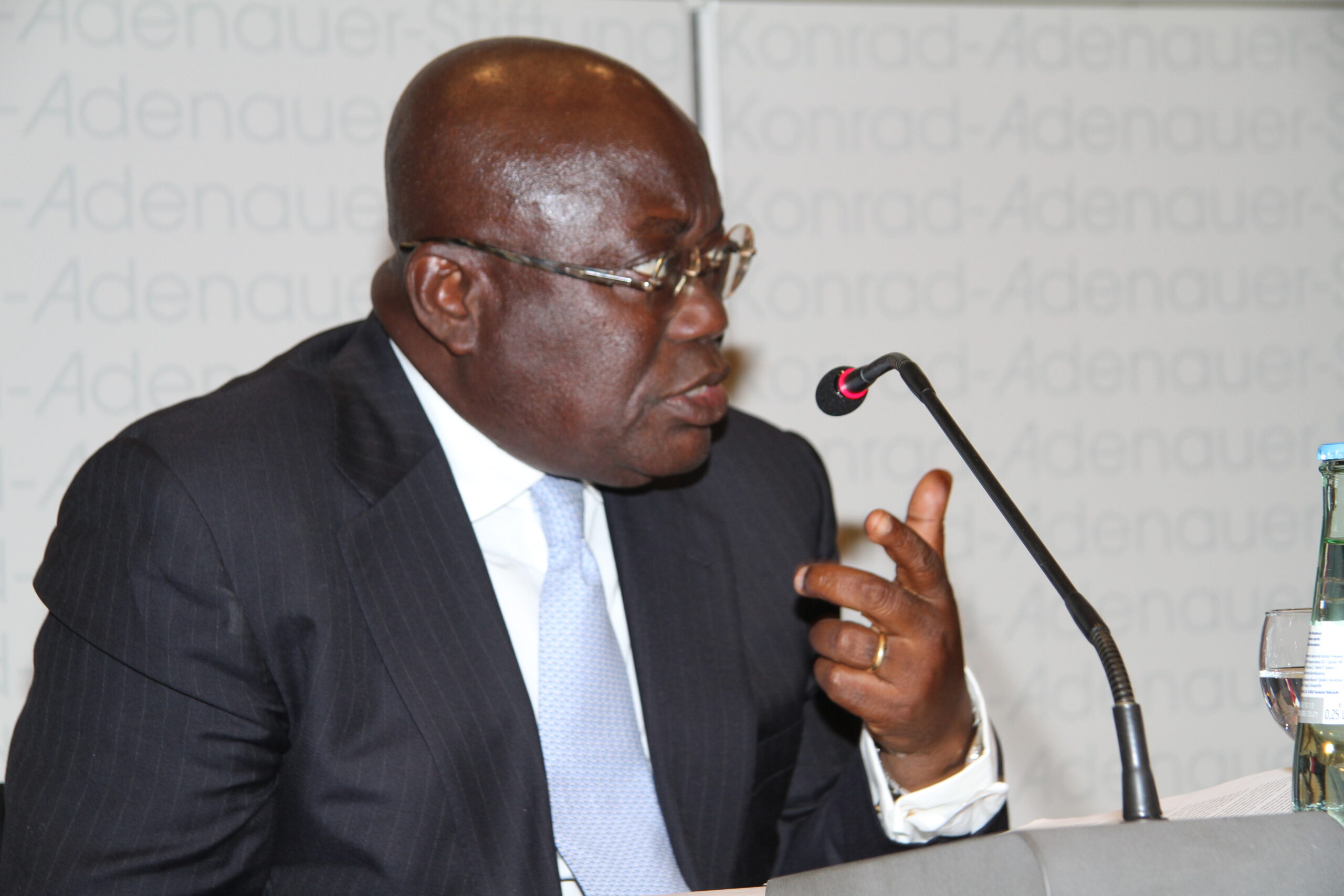Manasseh's Folder
Bright Simons replies Jospong with detailed analyses on mandatory towing levy

Joseph Siaw Agyepong is the Chairman of the Jospong Group of Companies, whose subisidiary, the Road Safety Management Service has been solely awarded the 20-year road towing contract
With all due respect, Mr. Siaw Agyepong of Jospong needs to give critics of the current design of the proposed mandatory towing levy scheme a bit of credit.
Taunting them with PR campaigns about running the scheme like an Uber service seem like having fun at their expense, but these are very serious matters.
Most Ghanaians believe and accept that we need an improvement in towing services. And right now capacity is seriously limited in the country due to underinvestment.
He has, reportedly, pledged to invest over $10 million in endeavour (an amount deducible from his obligations in the contract between his company and the government).
In a country where capital is in such supply, he already has a serious edge.
WHICHEVER model is eventually deployed he will secure the full returns on his investment. He is going to make a lot of money.
This running around making instant policy on radio is a bit unseemly.
Here is why he CANNOT run the national towing scheme “like Uber” and why he should respectfully desist from making fun of well meaning advice to improve the quality of the design.
1. He has a contract with an agency of the government that bars unilateral subcontracting. He cannot therefore on his own accord convert the program into an Uber for tow trucks. This is not a free for all drink up in the pub.
2. The agreement he has with the government requires pre-approval of every assignment to third parties and requisite due diligence on that third party. It is really not up to him to determine which provider is fit to receive public money from the good people of Ghana.
3. No matter how many subcontracts he signs there is no arithmetic formula in the world that should whittle down, as he insists would happen, his percentage entitlement to the pool of levies from 85% to 10%.
Subcontractors will take some of his costs away in exchange for some of the revenue. The effect should be neutral on his profits. His share of proceeds won’t change.
With these simple points clarified, let’s explain the current impasse.
4. Jospong/RSML entered into a contract with the government barely a year ago that preempted changes in law, and he is now seeking to make policy on the fly.
This is putting the cart before the wheel. First, let the policy on abandoned vehicles be settled and then the role of towing service providers can be properly defined so that his contract can be updated to align with the public interest as defined by the said policy.
5. In the absence of such a policy the contract he presently has with government is riddled with embarrassing illogicalities. And by rushing it ahead of substantive updates to the law, several provisions in it have been rendered patently illegal.
6. For example, the entire clause 9.2 of the contract is not compatible with law or public policy. It bestows authority on Jospong/RSML to determine whether a motorist notified the towing operator or not, and to apply surcharges if they did not. The road regulations see these punitive measures as the proper province of a court. Fines anticipated under the law must be upon summary conviction. This needs to be addressed.
7. The RSML contract empowers them to also set the rate of surcharges and to determine on the spot the list of other services warranted by the situation, and to charge the motorist for these services at a price set by RSML.
8. The contract states that all cars will be sent to authorised depots and that towing to any destination of the motorist’s choice will be at a cost to be determined by RSML. It would be better rather to provide a default radius within which towing shall be free for motorists who have already paid their levy. From the map of depots contemplated in the agreement it is entirely possible that a car picked up from Dansoman will be taken to Tema, when the motorist would have preferred Komompe. We see the situation where most motorists will end up paying on the spot for the towing service all the time just to get a reasonable outcome even though they have also paid the levy.
9. The law allows the motorist to call the Police instead of the towing operator. The contract does not. This is a sure recipe for confusion particularly when refusal to notify is grounds for a surcharge (in the contract) or even imprisonment (in the regulations). Has anyone tried calling the Police to an accident scene before? Did they show up in the 2 hours envisaged under the law? How does one prove that they called and did not?
10. The contract envisages a 20 year concession. This is much longer than comparable concessions world wide. From elementary calculations it can be shown that the towing operation investor should recoup all their investment within a year if 50% compliance is achieved. A 20 year concession is rather curious and needs careful a looking at. What financial sensitivity analysis was prepared to guide these decisions? Our information is that NONE at all. Otherwise why should comparable concessions in the vast majority of jurisdictions have a term of less than 5 years whilst we settle on 20?
11. No transfer of assets to the public agency is envisaged at the end of the term. For a service that imposes a mandatory fee on 2 million motorists and runs for 20 years, this is rather curious.
12. Many commentators are of the view that the participation of other towing companies should not be at the discretion of RSML via a subcontracting approach. It should be based on express policy to foster competition and and reduce operational risks and failures.
13. There are zero KPIs for the towing service operator in the current contract. In fact, as it stands now, we only have proper regulations for tow trucks themselves, not for the running of “national towing companies”. There has been absolutely no thinking through of important operational guidelines and standard procedures to regulate such entities. In recent media interviews, Mr. Agyepong claims that the contract awards his company the status of a regulator. That is not a “gift” that can be bestowed by a mere contract. Statute is required.
14. Even the coverage issue remains confusing. The contract restricts the entire program to a few major highway complexes and yet Mr. Agyepong talks about an “Uber for tow trucks”, suggesting municipal coverage.
If the program is intended to cover municipal areas then the less than 5 heavy tow trucks per region may well be inadequate. Has any coverage analytics actually been done? We haven’t seen any, and we are reliably informed none has been done.
15. The fee schedule remains speculative, even at this late stage. Meanwhile there is a promised upward review every two years. There must be independent consumer advocates on the biennial fees review committee and the 5-year service review committees.
These are just a few aspects of the proposed towing regime that needs fixing before Mr. Agyepong’s shiny tow trucks can be deployed at our collective cost.
Nobody is salivating at the prospect of his investment going down the drain. That’s not what this is about.
We need to become a serious country where we do things properly devoid of cheap sentiment and emotionalism.
This is not about who likes or doesn’t like Jospong. The Ghanaian motoring public doesn’t exist to pad the bank accounts of entrepreneurs. They deserve and demand service, and sound service at that, in return.
This is about, for once, THINKING THROUGH, designing and implementing an important national project that ACTUALLY WORKS WELL, and achieve its goals in a measurable way.
#SmartStateNow
Bright Simons is the CEO of Mpedegree and Vice President of IMANI Ghana

-

 Random Thoughts10 months ago
Random Thoughts10 months agoA Dutch Passport or a Ghanaian PhD?
-

 Foreign News10 years ago
Foreign News10 years agoEvery Animal Meat Is Not Beef! See All Their Names
-

 Manasseh's Folder12 months ago
Manasseh's Folder12 months agoManasseh’s Praise and Criticism of Akufo-Addo’s Action on the SML Scandal
-

 Guest Writers9 years ago
Guest Writers9 years agoProf. Kwaku Asare writes: Nana Akufo-Addo has no law degree but…
-

 Manasseh's Blog Posts9 months ago
Manasseh's Blog Posts9 months agoWho Started Free SHS?
-

 Manasseh's Folder9 months ago
Manasseh's Folder9 months agoIs Napo Arrogant? And Does It Matter?
-

 Anti-Corruption9 years ago
Anti-Corruption9 years agoMANASSEH’S FOLDER: Unmasking Afenyo Markins, NPP’s apostle of integrity
-

 Manasseh's Blog Posts2 days ago
Manasseh's Blog Posts2 days agoA tribute to Naa Ashorkor